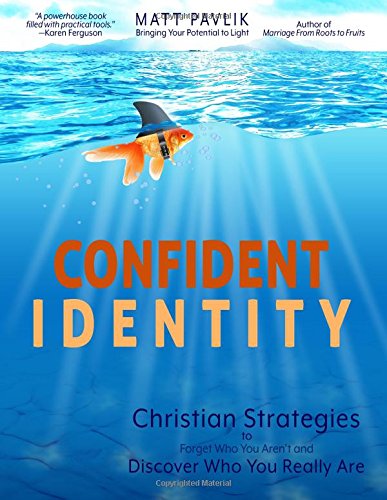A good
resource for counselors
For
those who are not aware, there is a branch of ministry that is known as
pastoral counseling. This is completely different from the way most people
would view counseling, psychology, and therapy in modern society. Pastoral
counseling is obviously based on the Bible.
Confident Identity is a resource created specifically for pastoral
counseling.
Part 1
helps people look at their identity and understand the different parts of it:
ashamed vs. confident, fearful vs. secure, doubtful vs. hopeful, rejected vs.
accepted, and isolated and desolate vs. connected and fruitful are the areas
that are specifically dealt with. Part 2 is all about discovering who you are
in Christ physically, in gender, in mental and emotional settings, in general
spirituality, in specific spirituality, and in personality. It also deals with
using strengths that are in one's life. Part 3 talks about using who we are in
Christ as we go forward in life. Our vision, concentration, and mission are all
a part of this.
I liked
this book as a resource. One aspect of my ministry going forward will be
pastoral counseling, so having resources on that aspect of ministry will be
huge for me. The charts, diagrams, and supplemental materials are good
resources. I think that the formatting of this book could have been condensed a
bit more. It's a rather tall book like a textbook, while it probably could have
been brought down to a more convenient size to carry and use. But for all of
these reasons, I give this book a respectable 3.75 stars out of 5.
WHERE TO BUY THIS BOOK:
https://www.amazon.com/Confident-Identity-Christian-Strategies-Discover/dp/0986383155/ref=sr_1_2?ie=UTF8&qid=1517412648&sr=8-2&keywords=confident+identity
BIBLIOGRAPHY OF THIS BOOK:
Pavlik,
Matt. Confident Identity: Christian Strategies
to Forget Who You Aren't and Discover Who You Really Are. Dayton, OH:
New Reflections Counseling, Inc., 2017.
DISCLOSURE OF MATERIAL: I received a
complimentary copy of this book through the Book Crash book review program,
which requires an honest, though not necessarily positive review. The opinions
I have expressed are my own.






















